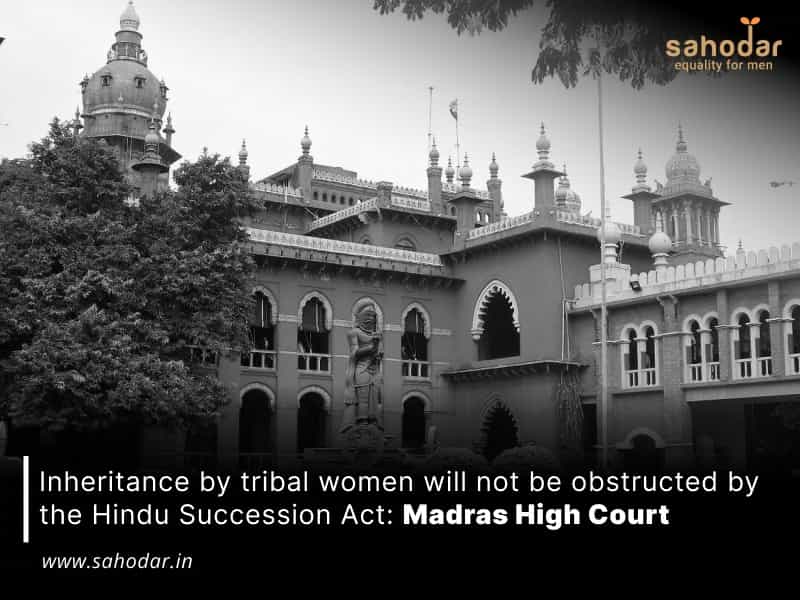In a recent development, the Madras High Court has backed the cause of tribal women seeking equal rights in inheritance. The court has emphasised that the Hindu Succession Act does not exclude tribal women from its purview, but instead aims to incorporate their customs.
According to Clause (2) of Section 2 of the Hindu Succession Act, the Act does not apply to Scheduled Tribe members unless directed otherwise by the Central Government through an official gazette notification.
Justice SM Subramaniam emphasised that the exclusion clause of Section 2(2) of the Hindu Succession Act should not impede the inheritance rights of tribal women residing in areas where Hinduism and Buddhism are practised. While there is no evidence presented on the prevailing customs and practices of the community in question, tribal women are currently deprived of the benefits of the Hindu Succession Act.
Therefore, according to Justice Subramaniam, Sub Section (2) of Section 2 of the Hindu Succession Act of 1956 should not obstruct the property inheritance of daughters belonging to tribal areas where Hinduism and Buddhism are followed.
Furthermore, the court instructed the Tamil Nadu government to take the required measures to issue suitable notifications through the Central Government under Section 2(2) of the Hindu Succession Act of 1956. This directive aims to safeguard the equal property rights of tribal women in Tamil Nadu.
The court further stated that the non-issuance or delay of the notification should not deny tribal women their right to inherit family property. Thus, Section 2(2) should not be interpreted as a complete obstacle for invoking the Hindu Succession Act. Instead, it allows the Central Government to notify those tribal communities where traditional customs and practices are no longer prevalent for property inheritance.
During the hearing of an appeal challenging the trial court’s ruling that granted tribal women equal shares in family property as male coparceners under the Hindu Succession Act, the Madras High Court was presented with the argument that Section 2(2) of the Act explicitly excludes tribal women from its application. The appellant’s contention was that the trial court had misapplied the law.
The respondents in the case argued that as the appellants failed to provide evidence of the customs and practices prevailing in their community, they should be governed by the Hindu Succession Act. Therefore, the trial court’s reliance on the Act was justified. The respondents also claimed that denying tribal women equal shares in family property would amount to discrimination and unconstitutionality. They argued that tribal women should be granted the same rights as other female Hindus in the state.
After confirming that the parties in question were members of a designated tribal community, the court proceeded to examine the prevailing customs and practices within that community to determine whether Section 2(2)’s exclusion clause applied. If there were no established customs or practices, the provisions of the Hindu Succession Act would apply.
The court further noted that the legislature did not intend to create inequality or violate the constitution, but rather sought to protect customs and practices that were deeply ingrained within the community. Therefore, a positive interpretation of the legislature was necessary to ensure that women were not denied their right to an equal share of inheritance.
Source: https://www.livelaw.in/news-updates/madras-high-court-tribal-women-not-excluded-under-hindu-succession-act-centre-and-state-to-notify-223337

